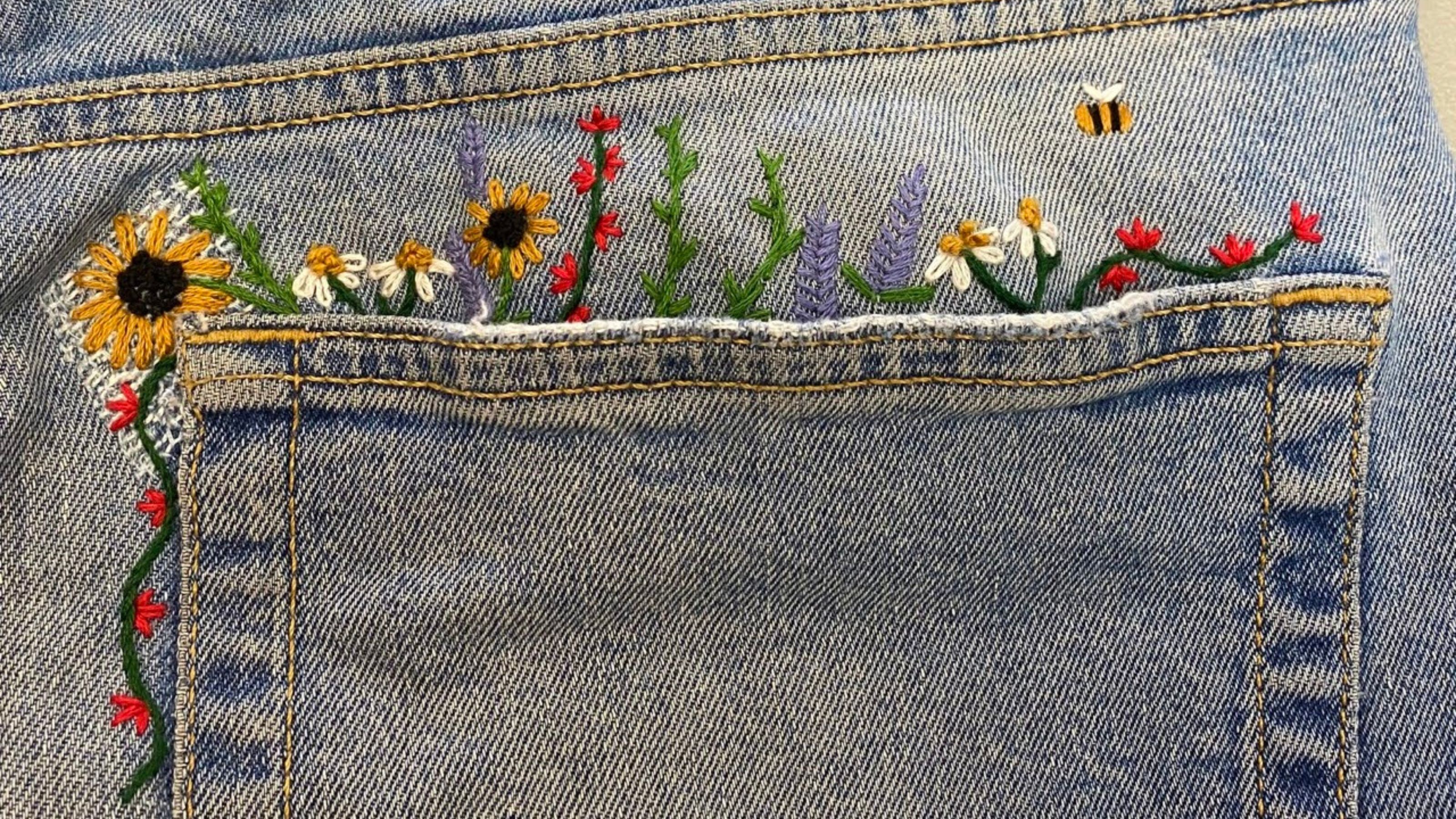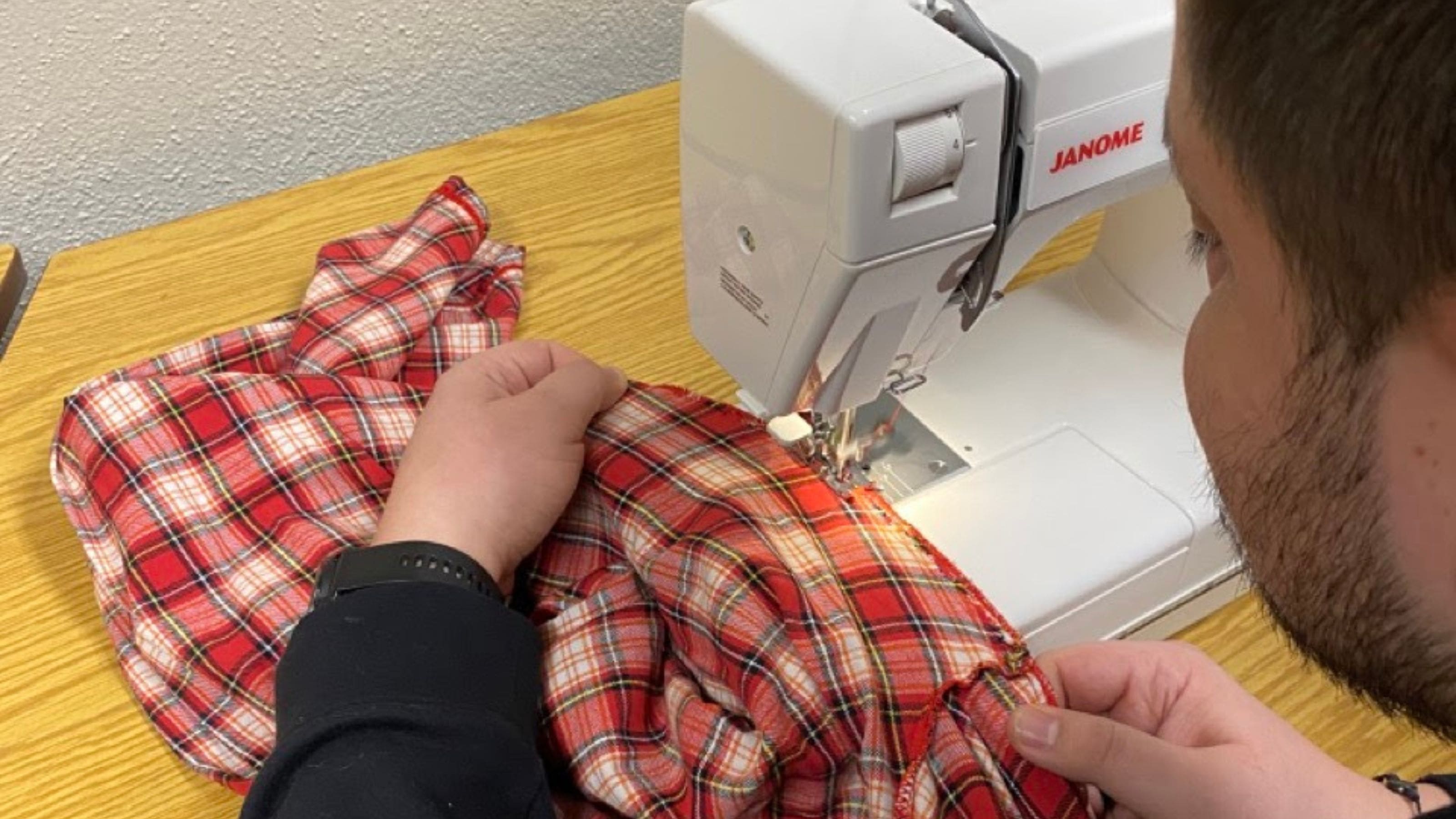Learning how to sew was a mandatory part of the curriculum when Rachel McQueen, professor in the Department of Human Ecology at the University of Alberta’s Faculty of Agriculture, Life and Environmental Sciences, attended middle school in New Zealand — a life skill that later became invaluable.
“It was part of the compulsory education for both boys and girls for what would be the Canadian equivalent of Grade 8 or 9. We had to take courses in sewing, cooking, metalworking and woodworking as part of our education,” says McQueen. “My mum would have done a bit of sewing, but I really learned how to do it at school. I even wound up taking it as an option in high school because I enjoyed it so much.”
Knowing how to sew is necessary to mend and alter clothing, which is increasingly a lost art in wider society and something McQueen, who joined the University of Alberta in 2007, decided to address by starting the Human Ecology Repair Café. It is a regular event for people to gather to mend clothes or alter them so they can get more use out of them.
“We conducted a survey to understand people’s behaviour in relation to extending the life of clothing. We asked questions about repairing and mending clothes because wearing your clothes for longer is the most impactful way to reduce fashion's carbon footprint,” says McQueen. “We found that skills and tools were the two main barriers. People either didn’t know how to mend clothes or lacked the tools to do so, such as a sewing machine, so there’s a greater chance that they’ll throw away their worn clothing and buy new. In the case of specialized items, they might take it to another person to repair. It could be a professional, such as a tailor or a skilled volunteer, such as their mother.”
McQueen received a Campus Sustainability Grant in May 2022 to purchase equipment and the materials needed for people to mend their clothes.
“We get donations of fabrics and threads, for example, but the grant helped us buy certain things to start. We provide the space, tools and materials. The café acts as a hybrid between unpaid repair or self-repair. We have highly-skilled volunteers who can mend items, but we encourage people to actually learn how to do it themselves. If it is a tricky repair, such as replacing a broken zipper, we have people who can help with that,” she says. “We held our first repair café event in October 2022 to coincide with International Repair Day, and it was very well received. Even people in the wider community, outside the university, have learned about us and come in as volunteers or to mend their clothes.”

